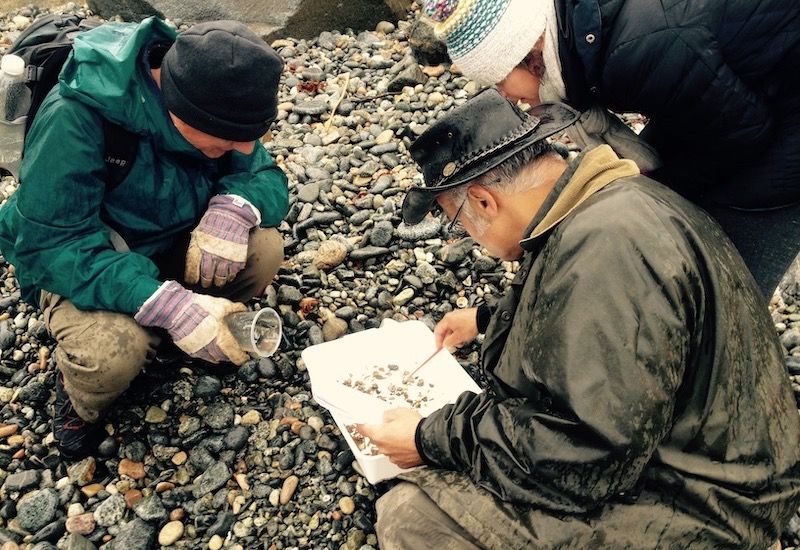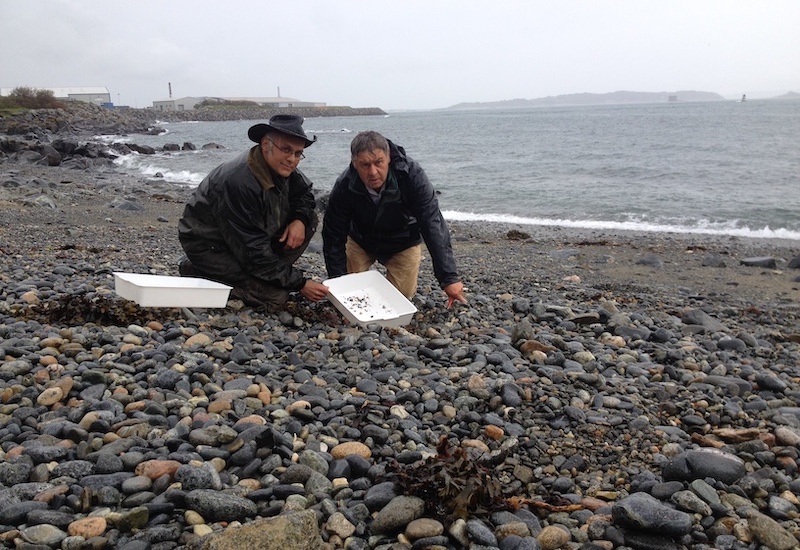

Spur Point, which is currently the States' preferred site for inert waste, is an "internationally valuable habitat" for the rare scaly cricket which should be designated as a nature reserve, a visiting researcher has said.
Professor Karim Vahed from the University of Derby has been doing surveys of the island's population of scaly crickets during his stay in Guernsey, in addition to delivering a presentation on the subject last night.
The committees responsible for the States' waste strategy have recommended using Longue Hougue South, which encompasses Spur Point, as the island's new inert waste site, although a group of deputies have since suggested reclaiming land east of St Peter Port Harbour instead.
Professor Vahed said recent studies by local researchers showed just how internationally significant Spur Point's population could be.
"They found over 100 in just a few traps and that suggests this space could be a very important habitat for crickets," he said.
It is just one of four localities in the British Isles that have a significant population of the crickets, which are deemed to be a vulnerable species.
"They have the same conservation status as an African elephant with the IUCN [International Union for Conservation of Nature]," he said. "People care an awful lot about the African elephant, but we should care just as much about the small things as well."
Sea level rises are a risk to the population, which inhabit only shingle beaches, while coastal developments are another threat to the species as it can leave them with no habitat to retreat to.
"This should at least be a site of special interest and should really be a nature reserve because it is an internationally valuable space," said Professor Vahed. "As someone from land-locked Derby, it seems incredible that anyone could think of filling this beach with inert waste."

La Societe Guernesiaise Entomology Section Secretary Trevor Bourgaize, right, said they had set pitfall traps at Spur Point last June, which resulted in 167 scaly crickets being found.
That fieldwork indicated that Spur Point's population was of similar density to Chesil Beach in Dorset, which is considered to be the species' "UK stronghold".
"Although the density here is on a smaller scale to Chesil Beach, it is still globally very significant."
The fieldwork yesterday, which saw dozens of pitfall traps being laid across the stony beach, did not yield great early results. Mr Bourgaize said this was mainly because of the weather as the scaly cricket is a thermophilic organism that favours high temperatures.
Pictured top: Professor Karim Vahed, bottom right, looking through some of the organisms that were trapped and then released at Spur Point.
Comments
Comments on this story express the views of the commentator only, not Bailiwick Publishing. We are unable to guarantee the accuracy of any of those comments.